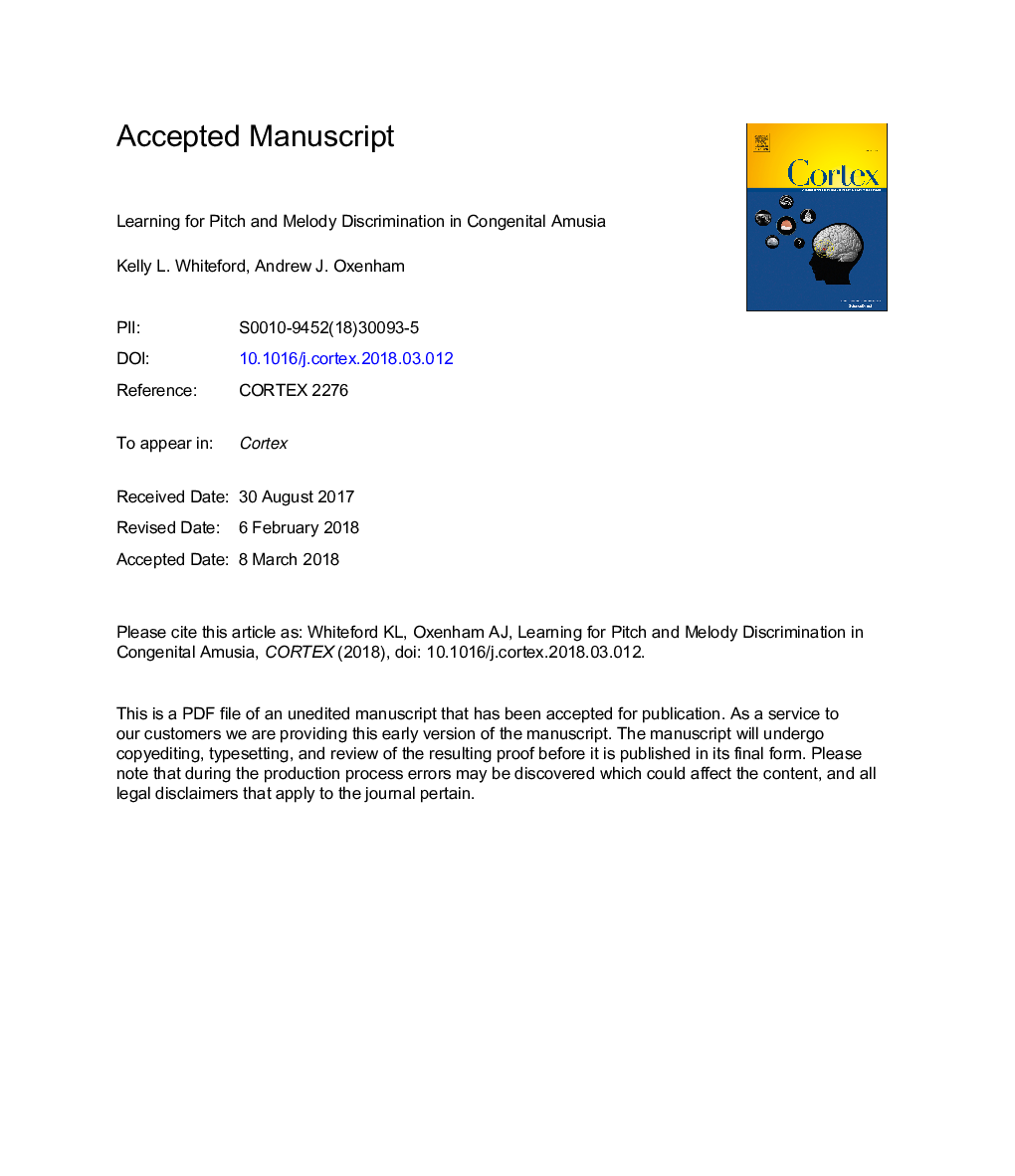| کد مقاله | کد نشریه | سال انتشار | مقاله انگلیسی | نسخه تمام متن |
|---|---|---|---|---|
| 7311571 | 1475429 | 2018 | 43 صفحه PDF | دانلود رایگان |
عنوان انگلیسی مقاله ISI
Learning for pitch and melody discrimination in congenital amusia
دانلود مقاله + سفارش ترجمه
دانلود مقاله ISI انگلیسی
رایگان برای ایرانیان
کلمات کلیدی
موضوعات مرتبط
علوم زیستی و بیوفناوری
علم عصب شناسی
علوم اعصاب رفتاری
پیش نمایش صفحه اول مقاله

چکیده انگلیسی
Congenital amusia is currently thought to be a life-long neurogenetic disorder in music perception, impervious to training in pitch or melody discrimination. This study provides an explicit test of whether amusic deficits can be reduced with training. Twenty amusics and 20 matched controls participated in four sessions of psychophysical training involving either pure-tone (500 Hz) pitch discrimination or a control task of lateralization (interaural level differences for bandpass white noise). Pure-tone pitch discrimination at low, medium, and high frequencies (500, 2000, and 8000 Hz) was measured before and after training (pretest and posttest) to determine the specificity of learning. Melody discrimination was also assessed before and after training using the full Montreal Battery of Evaluation of Amusia, the most widely used standardized test to diagnose amusia. Amusics performed more poorly than controls in pitch but not localization discrimination, but both groups improved with practice on the trained stimuli. Learning was broad, occurring across all three frequencies and melody discrimination for all groups, including those who trained on the non-pitch control task. Following training, 11 of 20 amusics no longer met the global diagnostic criteria for amusia. A separate group of untrained controls (n = 20), who also completed melody discrimination and pretest, improved by an equal amount as trained controls on all measures, suggesting that the bulk of learning for the control group occurred very rapidly from the pretest. Thirty-one trained participants (13 amusics) returned one year later to assess long-term maintenance of pitch and melody discrimination. On average, there was no change in performance between posttest and one-year follow-up, demonstrating that improvements on pitch- and melody-related tasks in amusics and controls can be maintained. The findings indicate that amusia is not always a life-long deficit when using the current standard diagnostic criteria.
ناشر
Database: Elsevier - ScienceDirect (ساینس دایرکت)
Journal: Cortex - Volume 103, June 2018, Pages 164-178
Journal: Cortex - Volume 103, June 2018, Pages 164-178
نویسندگان
Kelly L. Whiteford, Andrew J. Oxenham,